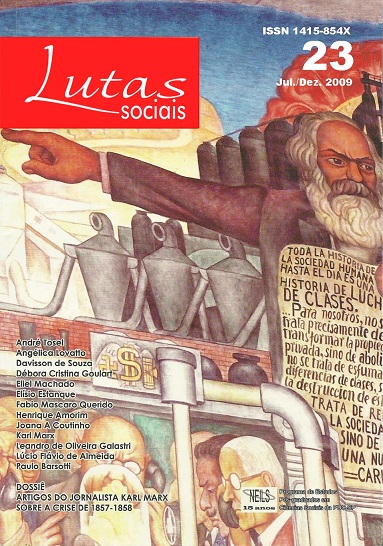Traditions of Labor Struggle and the Emergence of Movements of the Unemployed in Argentina
DOI:
https://doi.org/10.23925/ls.v0i23.18930Keywords:
Trade unionism. Movements of the unemployed. Working class struggles.Abstract
This article explores the relationship between trade unionism and the emergence of the movements of the unemployed in Argentina in the second half of the 1990s. From the perspective of Marxist theory, it explores the explanatory potential of the concept of relative overpopulation and it analyzes the protests of the unemployed as an integral part of the labor movement. It presents an analysis of trade unionism today and it critically interprets the notion that unionism is giving way to “new social movements.” The central hypothesis of this paper is that these organizations are heirs of the tradition of working class struggle in the country. To develop this idea it uses the theory of ideology and popular protest developed by the British historian George Rudé, particularly his concepts of inherent and derived ideas.Metrics
Metrics Loading ...
Downloads
Published
2009-12-20
How to Cite
C. C. de Souza, D. (2009). Traditions of Labor Struggle and the Emergence of Movements of the Unemployed in Argentina. Lutas Sociais, (23), 43–54. https://doi.org/10.23925/ls.v0i23.18930
Issue
Section
Articles
License
Matérias assinadas não expressam necessariamente a posição do coletivo da revista e são de exclusiva responsabilidade do(a)s respectivo(a)s autore(a)s.
Ao enviar seus textos, o(a)s autore(a)s cedem seus direitos à Lutas Sociais, que autoriza, com prévia permissão do Comitê Editorial, a reprodução das publicações, desde que conste o crédito de referência.



